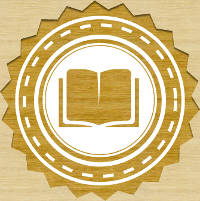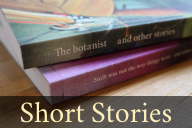Things are moving quickly in the land of academic publishing. And not necessarily in a bad direction. Just days after the public announcement of PeerJ, another open access venture has opened its doors: Scholastica.

Scholastica is a start-up by a Chicago-based collective of young researchers, designers, and developers. It is a unique concept in the sense that it is not an academic journal per se, but an infrastructure that facilitates the publication of open access journals. So its customers are journal editors, rather than prospective authors. Anyone who wants to start an academic journal, or who seeks a better outlet for an existing journal, can do so with Scholastica, which offers tools to handle all the editorial chores that come with running a journal. And there can be no doubt about it, the Scholastica web portal looks smooth, professional, and, well... good. I suppose that's the benefit of having professional designers and developers in your team.

Photo: Cory Schires (left) and Rob Walsh working on Scholastica.
But the question is, of course, whether Scholastica will be able to attract enough journals to sustain itself. And also, whether Scholastica is different enough: It is modern and refreshing, but still centred around the traditional concept of academic papers published in individual academic journals.
About these things and more I'll speak with Rob Walsh, one of the co-founders of Scholastica.
Sebastiaan: What inspired you to start Scholastica? Was the project borne out of frustration with the traditional system of academic publishing? Did you feel that a service like Scholastica could potentially be very profitable? Or did you have other motivations?

Rob: The three founders were swapping horror stories about getting published as an academic, either from personal experience or stories we’d heard from our friends and professors. We realized (as many people have) that scholarly publishing was broken. Additionally, I spent some time working at a journal in the humanities and there was plenty of back office work that I thought could be done in a better way. We conducted interviews with editors, authors, and reviewers, and kept hearing how frustrated everyone was with the entire system, and how little high-quality software was available. So we decided to build a web application for journals with the aim to truly revolutionize scholarly publishing by leveraging the possibilities of the internet.
Sebastiaan: The Scholastica collective consists of young people, who do not have much experience in the publishing business. I imagine that this might make people wary of signing up with Scholastica. For example, the main reason (I think) that the recent announcement of PeerJ has attracted so much attention is that the founders are big, credible names. What is your take on this? Will you actively try to increase the credibility of Scholastica, or do you think that in the end a good product (which Scholastica appears to be) will prove itself—big names or no?
Rob: We think we have the best of both worlds. We build Scholastica by working with experienced scholars to hear how they want the process to work. And because we’re outside of the big corporate scholarly publishing complex, we don’t take outdated assumptions for granted.
I have worked at a prominent academic journal (Callaloo), and that experience is helpful. But we also pull heavily from the experience of our journal editors: They tell us when we get a new feature right. While we definitely don’t have the big names, we are academics (two of us did masters programs at University of Chicago and one of us is finishing his PhD there right now), and as scholars who are also web programmers we decided to create something we think is helpful to academia as a whole.
Journals are where you need credibility and reputation, and they gain reputation by publishing great work and having great editors. PeerJ is a journal, so it needs credibility to get submissions. Scholastica, on the other hand, is a tool for journals, and helps journals gain reputation by letting them focus on the important work of selecting and publishing the best scholarship out there.
We are actively recruiting prominent academics who have a passion for improving how journals manage and publish scholarship, but the most important indicator of quality for us will not be big name individuals but prestigious journals using Scholastica.
Sebastiaan: Scholastica seems to be aimed at open access journals. Will you accept non-open access journals as well?
Rob: Any journal can use Scholastica to manage their editorial review process whether Open Access or not. If a journal decides that they want to publish Open Access, we just provide a simple way for them to do so.
Sebastiaan: On a related note, right now Scholastica seems to be aimed primarily at Law journals. Are you open to journals from all fields of research?
Rob: Journals from any discipline can use Scholastica. In fact, we originally designed Scholastica in collaboration with scholars from the social sciences and humanities. The reason that our most prominent clients are law reviews is that this group has been among the first to be receptive to Scholastica. Law reviews also pose a unique set of challenges. Specifically, journals receive thousands of submissions a year, and the same article is often submitted to many journals at once. Therefore, we offer (optional) functionality that fits their needs. Similarly, you can plug-in your journal to arXiv, a leading e-print repository that focuses on math, physics, computer science, etc.
Sebastiaan: What kind of business model are you using? Is Scholastica a non-profit organisation? You charge $10 (or $5 for law reviews) per submitted article. This isn't much, so you will need considerable throughput to sustain the service. What are you aiming for?
Rob: One of our core goals is that journals of all sizes, whether they receive 2000 submissions a year or 20, should have a great way to manage and publish their content. I don’t want to give too much away now, but our goal is to work with thousands of journals, and provide new e-publishing solutions that journals want and need. And we have seen a range of responses: Some journals are ecstatic to have quality software for an affordable price, but we’ve also definitely encountered journals that have been like “What do you mean you don’t want to charge me thousands of dollars? What’s the catch?”
Sebastiaan: Finally, if you don't mind, I'd like to pick your brain about some things that I've been thinking about myself. So forgive me if the questions are a bit leading!
Personally, I think that academic publishing suffers from two main problems. One problem is obviously the paywall, which still surrounds most research papers (~70%). This means that most research is not available to the people who paid for it—taxpayers. As an open access start-up (although, as you said, you may also publish subscription journals), I applaud Scholastica for trying to make a dent in the paywall!
But there may be a downside to open access publishing as well. If too many research papers are published in a non-systematic way, spread across hundreds (thousands?) of different little journals, it becomes very difficult to find the information you need. This is not specific to open access, of course, but open access exacerbates it, because it allows papers to get published more easily and in (even) greater numbers. In my mind, the future is therefore to let go of the concept of journals altogether. Why not have a relational database in which research is archived in a systematic, easily searchable way? For example, if you have conducted an experiment, why would you need to 'fluff' it with yet another elaborate introduction and discussion? Why not simply add it as a small bit of information to a database, ideally a central one that is shared across all disciplines, and link it with keywords to related results? This would take away some of the glory of doing research (or at least of writing papers), but at the end of the day it would be a more efficient way to communicate research. I guess what I'm saying is that nowadays there are so many researchers that the old-fashioned way of communicating research through papers doesn't make sense any more.
What are your thoughts on this? As it stands, Scholastica encourages editors to start yet more journals, containing yet more papers. This is not necessarily a criticism: I understand that this is how science works at the moment, and that you have to play the game (at least a bit) to get anywhere. But I was wondering whether, in the future, you would consider an even more radical departure of the traditional publishing model? Or perhaps you think that the current way of publishing papers across many different journals also has its benefits?
Rob: Let’s see: a few thoughts.
It isn’t clear to us that, as you claim, open access (OA) allows papers to get published in greater numbers. OA journals currently publish fewer articles per journal than non-OA journals: Approximately 30% of journals are OA while only 7.7% of articles published each year are OA, so the per-journal number of published articles is about 75% lower for OA journals compared to non-OA journals. Most OA journals utilize rigorous selection criteria to select—and reject—papers. OA is about making the end product of the review process more available, not about truncating or bastardizing that process.
We definitely agree with you that one core problem of academic publishing is that it becomes difficult to find the information you need. This strikes us as a problem of searching that does not necessitate centralization. As an example, the internet has not become powerful and useful because sites have become bigger, but because it has become easier to find the right sites. The fact that there can be many websites in the world isn’t a bad thing. We’re at the point in the internet’s history where finding what you want on the internet is no longer a daunting task. Just the other day, my mother wanted to know where the track star Usain Bolt was born—So she Googled it. I do like your idea about re-thinking the unit of scholarly output and networking a wider range of academic units (results, data, theory, articles, etc). We love ideas like this, and are going to be building scholarly publishing experiments into Scholastica, but we also want to help improve the current system along the way.
As for the role of journals: The more we’ve worked with editors, the more we’ve come to appreciate journals not as publications, but as collections of experts that filter and improve focused areas of knowledge. And this is a good thing: Six editors who really understand their subject area and care about producing better and better scholarship in that area benefit by having a social artifact to rally around. My co-founder and sociologist Brian Cody would probably categorize the journal as the Durkheimien totem of the scholarly world, or the team banner people in a specific field can rally around. There’s more and more published knowledge in the world, and we do think that focused groups of scholars are a good way to perform quality assurance over this new scholarship (think an elite crime-fighting team, but for sub-disciplines in academia).
Sebastiaan: Thank you for taking the time to talk to me. I wish you guys the best of luck, and I'm sure we'll hear more of Scholastica in the future!
Rob: The pleasure is all ours! Thanks for taking the time to talk to us, Sebastiaan!



